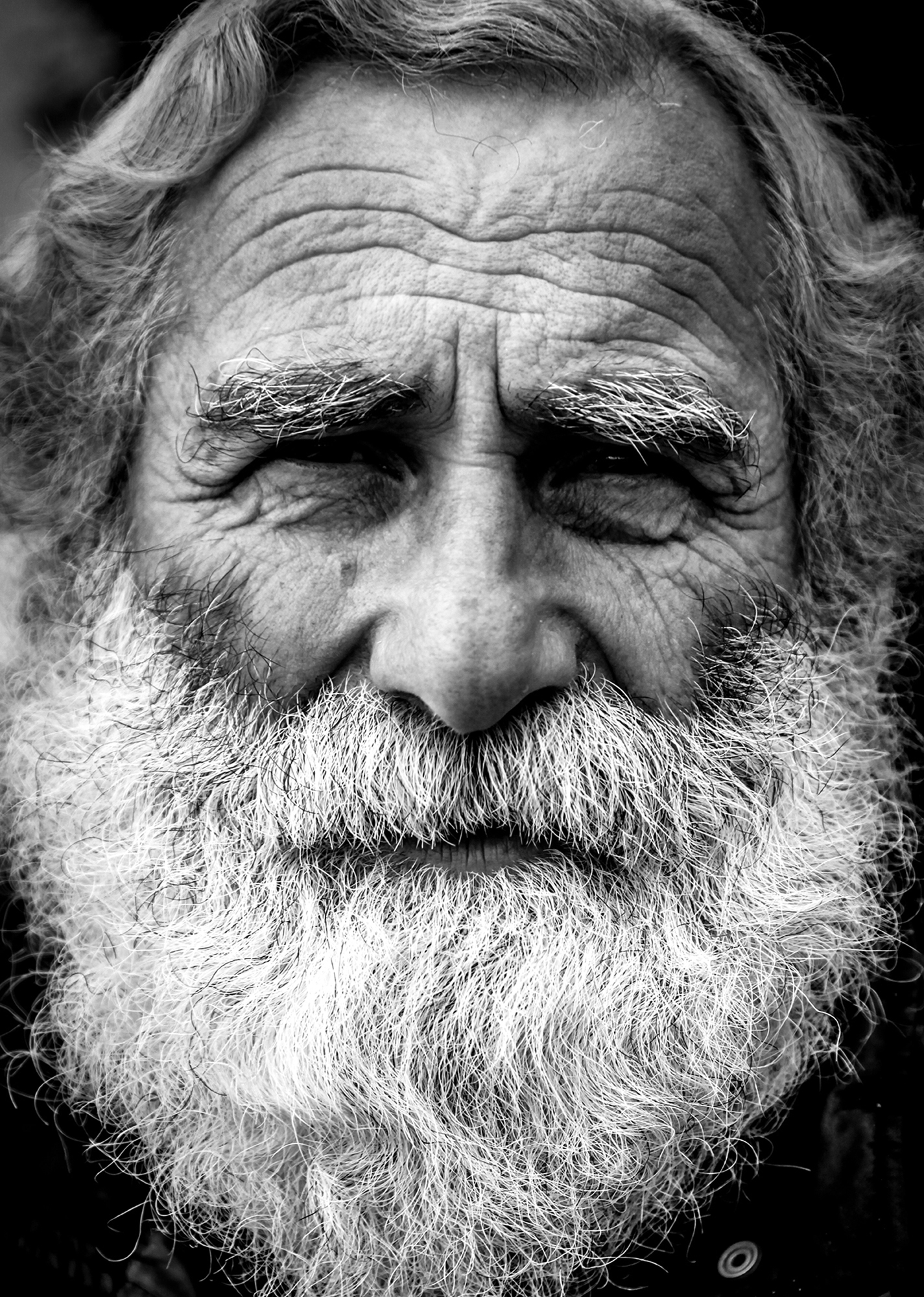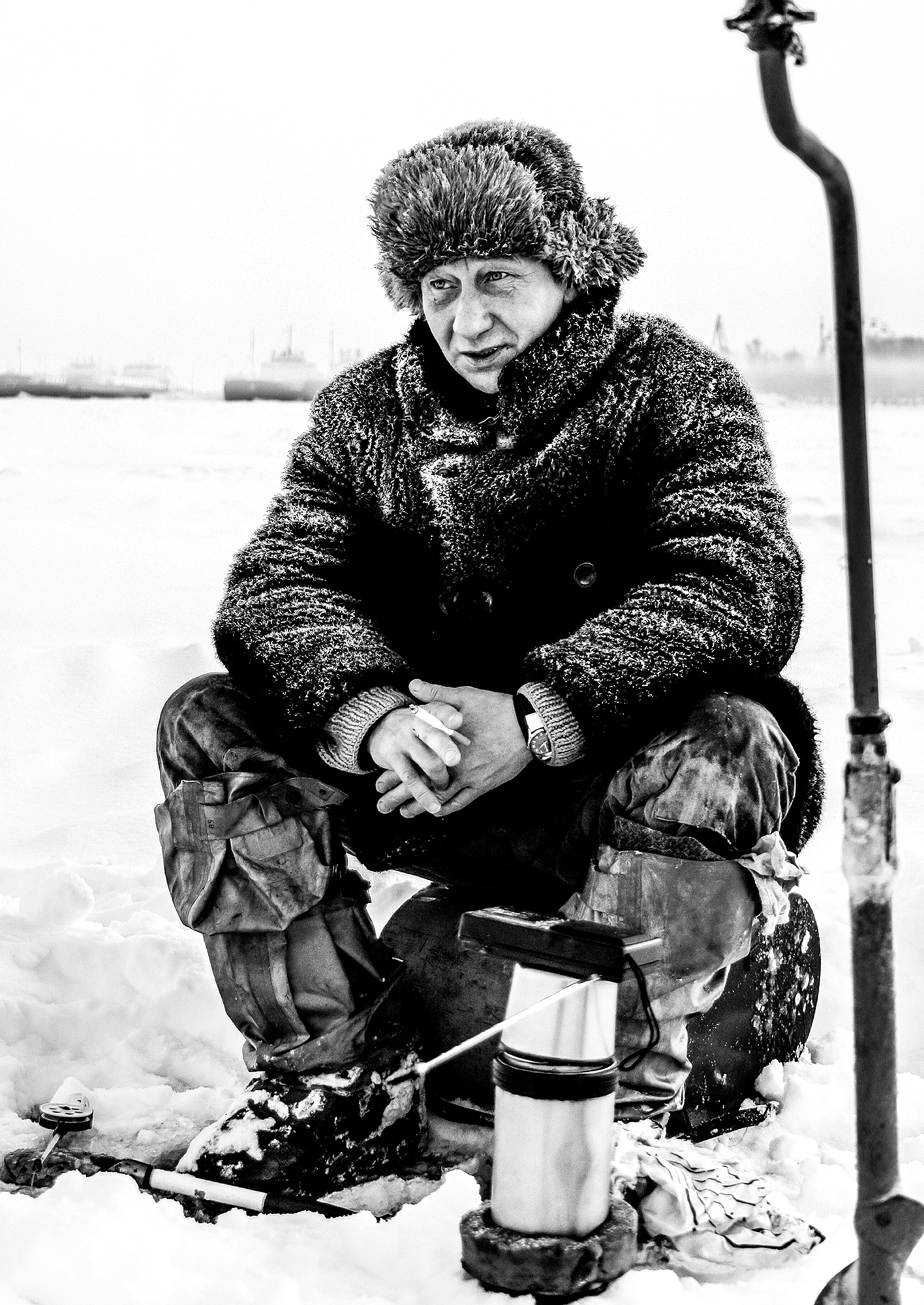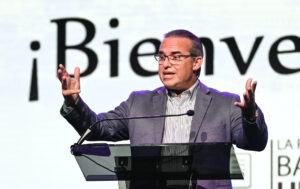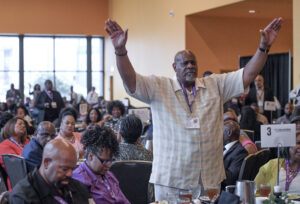
[SLIDESHOW=46048,46049,46051]DALLAS (BP) — Thirteen photos — a wide palette of Russian faces — hang on the walls of Marc Ira Hooks’ office.
 One is an elderly man in Sochi, the Russian city that hosted the 2014 Winter Olympics. Another is a young boy more than 5,700 miles away in eastern Siberia, face wrapped in fur. And there are more faces, covering the miles, cities and people groups in between.
One is an elderly man in Sochi, the Russian city that hosted the 2014 Winter Olympics. Another is a young boy more than 5,700 miles away in eastern Siberia, face wrapped in fur. And there are more faces, covering the miles, cities and people groups in between.
They’re the faces of the vast need for Christ in Russia, said Hooks, associate director of missions for the Dallas-area Collin Baptist Association/CBA Church Network as well as a photographer and former missionary to Eastern Europe.
“I wanted people to be able to look at the people of Russia as individuals,” said Hooks, who first created the photo gallery for Community North Baptist Church in McKinney, Texas. “This allowed them to look into the eyes of the lost.”
Those eyes represent a huge number — of Russia’s 145 million people, only 1.2 percent are evangelical Christians, according to Operation World. The nation encompasses more than 100 unreached people groups speaking 90-plus languages.
“With Russia being mentioned in the news every day, and usually not a positive light, it is easy to forget this country is made up of people whose everyday lives and experiences are not that much different from our own,” Hooks said.
 “When we put aside the rhetoric of government and look into the eyes of the people, we discover they are girls, boys, women and men who are in need of exposure to a living witness of the Gospel of Jesus Christ.”
“When we put aside the rhetoric of government and look into the eyes of the people, we discover they are girls, boys, women and men who are in need of exposure to a living witness of the Gospel of Jesus Christ.”
But getting the Gospel to them has been even more of a challenge, he noted, since the Russian government enacted amendments to its religious extremism law in mid-2016.
The comments of one Russian pastor reflect the new environment, noting that “there are no easy times in Russia right now for evangelical churches. We started to have ‘invisible’ persecutions on Christians. I can’t describe all the situation, since the emails can be observed.”
The amendments limit the religious freedoms of both citizens and tourists, with the exception of the state-approved Russian Orthodox Church.
Perhaps most notably, the law turns evangelism, preaching or praying into a punishable crime if a person engages in those activities outside of designated areas such as government-sanctioned churches. It also requires telephone and internet companies to record activity and report to the government.
The punishment for unsanctioned activities could range from a fine to a prison term up to eight years.
Hooks said the law “really wasn’t targeting evangelical Christians; it was a measure to curb the violence and terrorism that is often associated with some of the more radical world religions.” Russia is a big country — half the world wide, he said — and the law’s application has seen a wide variety of interpretations in different areas over the miles.
“The law was written in such a way that all religions that are not Russian Orthodox are lumped into the same category, and we are suffering the unintended consequences,” he said. “You could have a government official who interprets the law very strictly in one place, but in another you could have one who leaves Christians alone. It’s really kind of a mixed bag.”
And it’s seen mixed results too, Hooks said.
“Part of what has happened has driven the church to be a little stronger,” he said, noting that often happens in the face of persecution. “But it has hurt the work as well.”
Evangelical overseas workers have been turned away and denied visas, Hooks said. The result? A net loss in short-term and long-term missionaries.
“Volunteer groups have sometimes been denied entry,” he said. “Other times, they’ve come and gone without difficulty. Other times, after they left, their Russian hosts had problems with the government.”
Randy Covington, executive director of the Alaska Baptist Convention, said he sees the same problems, but he clings to the glimmer of hope that the church will see growth as a result. When he moved to the far eastern side of Russia as a missionary in the early 1990s, he found believers who had learned grit in the face of persecution under communism.
“When we arrived, the cloud of communism was still hanging over Russia, and we saw some amazing commitment to the Gospel in the face of personal cost and sacrifice,” he said. “They were very well grounded in their faith, and they were willing to stand up to local officials and not bend on their beliefs.”
 Although Americans see Vladimir Putin, Russia’s president, as the face of its people, Covington said they are “stoic, very private individuals” — but that’s just a public persona. When he lived in Russia, he found that the people didn’t know who to trust, so they didn’t talk to anyone.
Although Americans see Vladimir Putin, Russia’s president, as the face of its people, Covington said they are “stoic, very private individuals” — but that’s just a public persona. When he lived in Russia, he found that the people didn’t know who to trust, so they didn’t talk to anyone.
“But once you got them in their homes, it was like they were a whole different person,” Covington said. “They were gracious, hospitable, joyful and extremely self-sacrificing.”
In the years of freedom since, the Russian church — at least some of it — has slid into apathy, Covington said. So he prays that believers will grow hearty of heart, not retreat from who they are, and he encourages others to pray the same.
“Pray for them to remain firm in their faith — that’s what allowed the underground church to keep going under 70 years of persecution,” he said. “Pray for them to remain true to their faith and willing to sacrifice all.”
Covington said he has a passion to see Russian Americans take the Gospel back to their homeland, as they wouldn’t face the barriers that non-Russian evangelicals might.
“What I would like to see happen is for Russians in America to find ways to mobilize and stand alongside Russian believers in proclaiming the Gospel,” Covington said. “It’s the perfect opportunity for them to come in and encourage the local brothers and sisters.”
Hooks agreed that local believers could use all the encouragement they could get in staying strong for Christ.
“I think really we need to pray for the believers there to be bold in their faith, not to shrink away just because the government decides to be intimidating,” he said.
Some churches have become bold, evangelistic witnesses since the fall of communism, and Hooks said he is concerned that those who haven’t might become even quieter.
The law is written in such a way that if “somebody really wanted to cause trouble,” the church could be fined for trying to convert someone if a nonbeliever is present when an evangelistic message is preached, even if its within the walls of the church, Hooks said.
“Believers know full well that there may be consequences for sharing their faith,” he said. “Pray for them to be bold and faithful anyway.”















